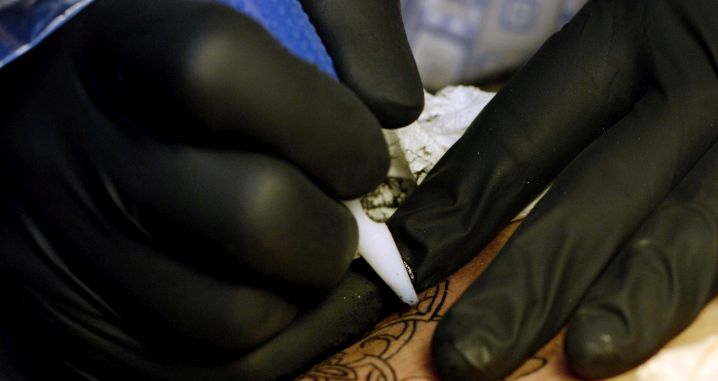A seven-year-old piece of legislation may soon change where you get tattooed and pierced in Nova Scotia.

The Safe Body Art Act was first passed in November 2011 but the legislation — intended to protect Nova Scotians from disease when they get tattoos or piercings — wasn’t proclaimed until March 2018.
Currently, unlike in other provinces, tattoo artists and piercers in Nova Scotia aren’t required to have any safety training and inspections were carried out only if a complaint was made.
But now, more than seven years later, legislation that will change that is set to come into effect on Feb. 1.
READ MORE: Halifax student develops tattoo removal cream
Although the Department of Health and Wellness was responsible for the act and creating the regulations, the Department of Environment has been given the task of providing inspections and oversight as part of the province’s first attempt to regulate the booming body art industry in Nova Scotia.
Rachel Boomer, a spokesperson for the Department of Environment, said the delay in implementing the act was the result of planning and consultation.
“It takes time to develop a new regulatory regime where none existed before,” Boomer wrote in an email.
“It was worth taking the time to ensure these regulations protect public health.”
Boomer says that although the piece of legislation was passed in 2011, the regulations that will actually be enforced under the act were developed ahead of 2018 and was done so in consultation with the industry in the province.
“We consulted with industry several times during the process to develop the legislation and regulations, and they have expressed support,” said Boomer.
WATCH: Dead tattoo artist’s skin removed, preserved to honour his work

Karen Wong-Petrie, the province’s director of environmental health and food safety, told Global News Morning on Friday that inspectors will carry out unannounced inspections at regular intervals although they will still investigate when complaints are made.
In order to prepare for Feb. 1, the Department of the Environment will be hosting public information sessions throughout the month in order to help body art studios be ready for the new inspection regime.
Wong-Petrie said that those shops will soon be able to apply for a permit online.
“Within thirty days of receiving that permit they’ll be inspected,” she said.
She said there are no plans to make the inspection records available online to the public — as is done with restaurant inspection records in Nova Scotia — but that the permit will be proof that a business is up to the province’s standards.
“If there are issues that would be a health hazard within any type of facility like this, one of the abilities we have is to withdraw a permit or suspend a permit,” Wong-Petrie said.
She recommends that before receiving a tattoo or a piercing that customers check if the business has a permit in plain sight on the wall. Businesses are required to display the permit as part of the new act.
READ MORE: An investigation into food inspections in Nova Scotia
New Rules
In order to provide body art services in Nova Scotia after Feb. 1, facilities must hold a permit, of which there are two types: class 1 and class 2.
A class 1 permit is for permanent and mobile facilities. The permit will cost $195 plus tax and will be valid for a 10-year period. It can be renewed.
The class 2 permit will be for temporary events and will cost $30 plus tax. The permit will last for a specific time period (up to a maximum of 14 days) and will not be renewable.
Businesses will also be responsible for maintaining new standards for infection prevention and records management.




Comments